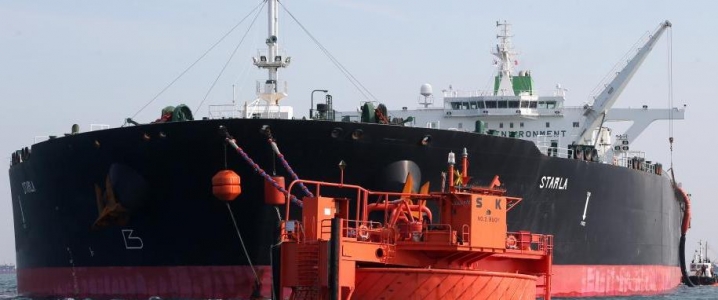After the United States pulled out of the Obama-era Iran nuclear deal and re-imposed and added to sanctions last year, the Trump administration granted waivers to eight countries who were already established buyers to continue buying specified amounts of Iranian oil for 180 days. Now, however, a senior Iranian energy official in Tehran says that these countries are not making use of the waivers and are instead complying fully with the strict zero-oil sanctions.
According to Iran's deputy oil minister for trade and international affairs Amir Hossein Zamaninia, "China, India, Japan, South Korea and other countries that were granted waivers from America to import Iranian oil are not willing to buy even one barrel more from Iran." The “other countries” granted waivers by the United States are Italy, Greece, Taiwan and Turkey.
On the surface this sounds like devastating news for Iran, which is already struggling with a lagging economy, increasingly tense regional relations, unrest within the ranks of the current regime, and widespread protests. The Rouhani administration in Iran made the nuclear deal, also known as Joint Comprehensive Plan of Action (JCPOA), a major part of their platform and as therefore lost a considerable amount of support from its own constituents in the wake of the deal’s dissolution. In spite of this, Zamaninia is optimistic, quoted by the Oil Ministry's news agency SHANA as saying that Tehran has no shortage of prospective buyers for their oil. In fact, Zamaninia says that number of interested countries has significantly increased thanks to a competitive market.
Iran does have some notable allies in the face of the renewed sanctions. The Rouhani administration has been working on strengthening these relations with economic powerhouses such as Russia and India. While Iran’s relationship with Russia has been somewhat tenuous, they have been allies in Syria in support of the Assad regime, and more importantly Russia is a willing candidate for undermining U.S. sanctions. Iran also has a strong relationship with India, which has found a way to keep trading in Iranian crude oil by way of banking loopholes involving five escrow accounts in Iranian banks. Related: What Apple’s Tailspin Means For Oil Prices
In addition to these somewhat tentative alliances, the European Union strongly opposed the Trump administration’s decision to withdraw from the Iran nuclear deal and despite tense relations with Tehran has been consistently resistant to comply with U.S. sanctions. Tehran is now urging those European countries still committed to holding up their end of the nuclear deal to further oppose the sanctions by setting up a financial system known as SPV (Special Purpose Vehicle for trade) that would facilitate payments for sale of Iranian oil.
In the meantime, the U.S. has stood strong with the revamped sanctions with a stated purpose of curbing Iran’s missile and nuclear programs and to push back against the nation’s increasing military presence and political influence throughout the middle east. In the face of the U.S.’s unflinching position, Tehran admits that even the support of the European Union may not be enough to sidestep the sanctions. Zamaninia says that even if the SPV financial mechanism is instated, it would be "helpful but could not resolve the problems since U.S. influence will affect any European action".
Meanwhile, the oil sanction waivers--whether the receiving countries are making use of them are not--don’t expire until March, when President Trump will announce whether or not the original six-month waiver will be extended. If no more waivers are granted and the other countries purportedly interested in Iranian oil don’t start buying in considerable quantities, Iran’s next best hope is for a more nuclear-deal friendly regime change in the United States in 2020.
In the end, waivers and elections in the United States may be too little too late for Iran, as the nation’s economy has already taken a huge hit that has caused the nation’s disillusioned citizens to lash out against the current regime and even take to the streets, chanting “Our enemy is right here, it is not the U.S.”
By Haley Zaremba for Oilprice.com
More Top Reads From Oilprice.com:
- Is Oil Demand Growth A Certainty In 2019?
- U.S. Army Joins Race To Expand U.S. Oil Exports
- Saudis Set Sights On $80 Oil


















